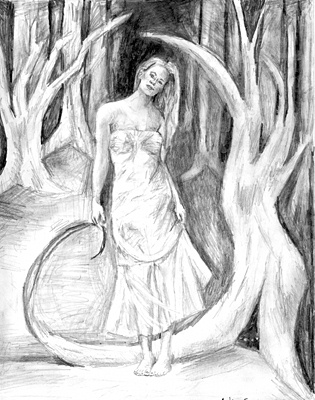All Nonfiction
- Bullying
- Books
- Academic
- Author Interviews
- Celebrity interviews
- College Articles
- College Essays
- Educator of the Year
- Heroes
- Interviews
- Memoir
- Personal Experience
- Sports
- Travel & Culture
All Opinions
- Bullying
- Current Events / Politics
- Discrimination
- Drugs / Alcohol / Smoking
- Entertainment / Celebrities
- Environment
- Love / Relationships
- Movies / Music / TV
- Pop Culture / Trends
- School / College
- Social Issues / Civics
- Spirituality / Religion
- Sports / Hobbies
All Hot Topics
- Bullying
- Community Service
- Environment
- Health
- Letters to the Editor
- Pride & Prejudice
- What Matters
- Back
Summer Guide
- Program Links
- Program Reviews
- Back
College Guide
- College Links
- College Reviews
- College Essays
- College Articles
- Back
A Sage Cynic MAG
As a pessimistic 17-year-old, I am not exactly a bundle ofjoy. With a wry grin, I cynically knock the feeble attempts of those trying tomake the world a better place.
I am a Jewish-American Princess, a memberof the detested bourgeoisie. This, however, is just a front. A Freudian analysis would say thatmy tendency to put down the goals and ideas of others is a result of sexualfrustration and resentment toward my mother. In truth, I want desperately for theworld to make sense. I am an idealist who is angry at the world for not beingperfect. This is the way things are; I know this, so everyone who does not knowthis is just another pathetic fool.
Despite my "sage wisdom," Istill have jolts of hope that creep up spontaneously and surprise me. I see afiery orange maple tree outside my window that makes me smile. The ivy that runsup the trunk makes me think of a scene from a Jane Austen novel.
While myview of the world is easily jaded by the injustices of high school, little thingsrestore my faith. I love the way the weekend sun shines through my blinds,adorning my hands with luminescent stripes as I type on my computer. I thrill inwalking down the street late at night - or ridiculously early in the morning, andseeing beloved lyrics - "When the smell of the rain-washed pavement comes upclean, and fresh and cold. And the streetlamp light fills the
gutter withgold"* - come to life before my eyes. For these precious moments, there isno school. No politics can get in the way of life's pure beauty. The easy moodcreated by Elton John's "Mona Lisa's and Mad Hatters" cannot besuppressed by any matter of real-world complications.
This is the realworld - the peace that comes from a Sunday afternoon. It's knowing that the worldis not perfect and still finding something to smile about. In the end, none ofour petty hang-ups will matter.
There will be nature and feelings. Thisis the wisdom that is known to the very old and the very young. As infants welive by instinct, responding to how nature affects us. We know what makes uslaugh and are very clear about our dislikes. For hours, we preoccupy ourselvesstudying our environment: how many stars are there at night? How do birds know tofly in a V? Why do people lie? Adults quickly dismiss these questions as futileas they move on to more important things. It is not until we reach the end of ourlives that we realize the value of such questions.
Suddenly, we noticeonce more the magical subtleties that make each moment special. Some questions weknow the answers to, and others we realize have no answers.
I think thereason older people notice the same things as the young is that they have comefull circle. As they reflect on a lifetime wasted on superficialities,they suddenly remember the joy experienced when they discovered the world for thefirst time.
So even though I am as cynical as the two old men in thebalcony on "The Muppet Show," I feel joy over simplicity. I believethat it is important to notice the small enchantments, because in the end, theyare all that will be left. *From "Guys and Dolls"

Similar Articles
JOIN THE DISCUSSION
This article has 0 comments.
